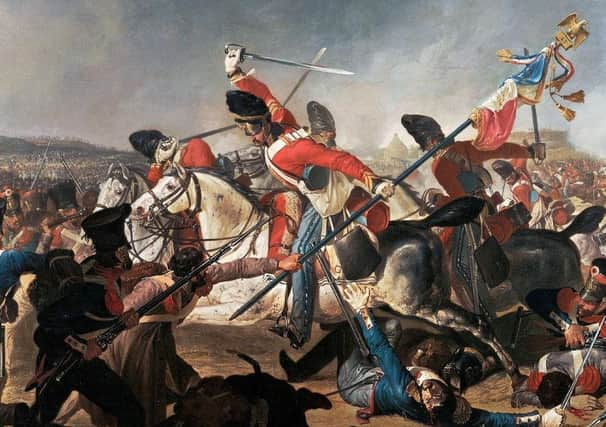NI may be facing its economic Waterloo – unless we get better at raising and spending public cash


First, NI Water is asking for over £2bn of investment during 2021-27 for its infrastructure.
And second the bill for the Troubles victims’ pensions could reach as high as £800m (a lot more than the £160m previously estimated).
Advertisement
Hide AdAdvertisement
Hide AdThe under-appreciated link between these two stories is that, whilst these are undoubtedly very deserving causes, we are constantly adding yet more demands on the public expenditure system.


That system is either broke (metaphorically and literally) or very close to it.
NI is far from unique in having constantly rising demands for public spending. What is unusual is that there appears to be almost nothing in our political structures which acts either as any sort of brake on those demands, or might promote greater revenue-raising from within the region.
At the beginning of this year we had the ‘New Decade, New Approach’ (NDNA) – this contained very ambitious statements about what the parties wished to achieve through a restored Executive. At the time it was estimated that £5bn of extra funding might be required to realise such projects. With hindsight it is fairly clear the actual shortfall was much larger than that.
Advertisement
Hide AdAdvertisement
Hide AdSince then, we’ve obviously had the implications of the lockdown and the associated very severe recession.
Of course, the NI Executive has received a bundle of “extra money” from the Treasury since March: £2.2bn of so-called Barnett consequentials, plus extra
spending in the form of job retention subsidies, tax reliefs, and benefits.
But it would be unrealistic to expect the London government, facing a fiscal deficit of £300bn, to be able to write cheques to deal with all the unfunded demands of NI. Without fundamental change in the way we raise and use public money, the NI Executive could be facing its financial Waterloo or Dunkirk.
There are some things which could and should be done:
Advertisement
Hide AdAdvertisement
Hide AdTighter priority setting and managing big procurement projects much better.
Revenue raising- this is partly (but only partly) about domestic water charges.
Apply the suggestion of the NDNA deal - establish a fiscal council to assess report on the sustainability of the Executive’s finances and spending proposals.
Dr Esmond Birnie, University of Ulster
READ MORE FROM THE NEWS LETTER:
Advertisement
Hide AdAdvertisement
Hide Ad________________________
A message from the Editor:
Thank you for reading this story on our website. While I have your attention, I also have an important request to make of you.
With the coronavirus lockdown having a major impact on many of our advertisers — and consequently the revenue we receive — we are more reliant than ever on you taking out a digital subscription.
Advertisement
Hide AdAdvertisement
Hide AdSubscribe to newsletter.co.uk and enjoy unlimited access to the best Northern Ireland and UK news and information online and on our app. With a digital subscription, you can read more than 5 articles, see fewer ads, enjoy faster load times, and get access to exclusive newsletters and content. Visit https://www.newsletter.co.uk/subscriptions now to sign up.
Our journalism costs money and we rely on advertising, print and digital revenues to help to support them. By supporting us, we are able to support you in providing trusted, fact-checked content for this website.
Alistair Bushe
Editor